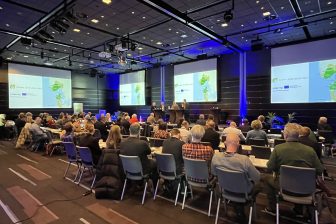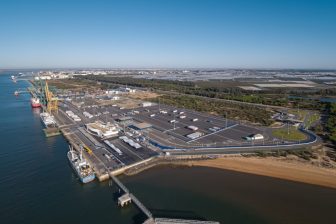
‘Terminal strategy is key, but almost absent in Europe’
“At the end of the day, improving rail terminal efficiency is a question of being competitive with the entire logistics chain”, said Ralf Charley Schultze, president of the International Union for Road-Rail Combined Transport (UIRR). He will be chairman of the day at the conference Improving Rail Terminal Efficiency, held on 28 March in Utrecht, the Netherlands.
Terminal efficiency bears on asset productivity, punctuality, reliability and the perception of the entire intermodal transport chain. This elevates the importance of terminals way beyond the proportion of the transshipment within the total cost/price”, Schultze said. Despite this importance, terminals are not often discussed by the different stakeholders, which may come from various fields of expertise. But they are intrinsically linked, Schultze believes.
Lack of strategy
According to him, intermodal transport is the main source of cargo for freight trains. A terminal is the interface where this cargo is loaded to or unloaded from these trains. Therefore, the link between freight operators and those involved with the terminal is organic, he emphasised.
As there is a lack of cooperation, there is a lack of terminal policy, on the national as well as the EU level. “Very few member states have anything that resembles a terminal strategy today, which is a natural continuation of the absence of an intermodal strategy. There are no national development plans coming together in a single European strategy.”
“Intermodal transport has not yet been accepted as a mainstay of longer distance continental freight logistics in most member states”, he continues. “The density is quite different from one country to another. Awareness must be raised in this respect.”
Location and density
At the conference Improving Rail Terminal Efficiency, the European Commission will share its views on the role of terminals in EU freight policy, including relevant market and infrastructure aspects. Terminal operators and stakeholders will discuss the importance of location and terminal density.
“Location determines two aspects: space and ease-of-access, from the perspective of every mode that needs to enter the facility”, commented Schultze. “Several new terminals will have to be constructed in the next decade, while many existing ones will need serious refurbishment/upgrading. These two aspects will be critical.”
Other topics to be discussed are the time of arrival, the cost of delays, terminal design and terminal automation. “The speakers are all professionals. They will be able to share their experiences from a best-practice perspective and share their expectations and challenges. We can expect a lively discussion on how to improve the efficiency based on concrete examples.”
Freight and Terminal Forum
The conference takes place on the last day of the three-day exhibition fair called the Freight and Terminal Forum. As part of the larger RailTech Europe 2019, this event is held from 26-28 March 2019. Registration is already open.
Also read:





